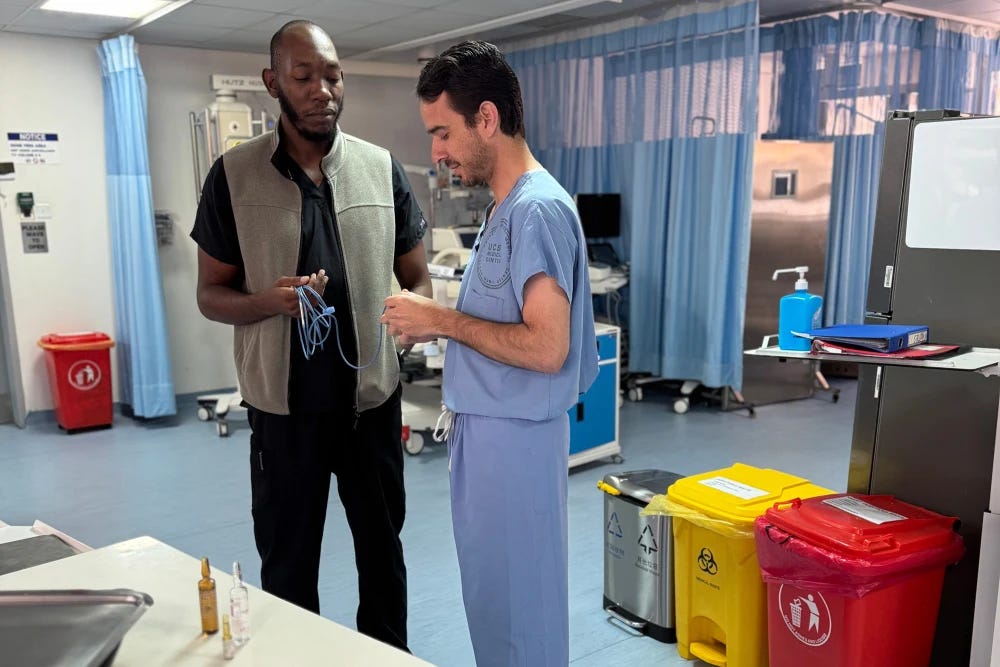Trump's Anti-DEI Orders Could Hinder Pulse Oximeter Research, Experts Warn
Doctors are concerned that recent executive orders targeting diversity, equity, and inclusion initiatives may disrupt progress in studying racial disparities in medical devices, including pulse oximet
Experts fear that efforts to address the racial disparities in pulse oximeter readings could be jeopardized by recent actions from the Trump administration. Researchers, including Dr. Michael Lipnick, an anesthesiologist at the University of California, San Francisco, are especially concerned about the future of funding for their work aimed at improving pulse oximeter performance across different skin tones.
“I’m really worried,” said Dr. Lipnick, whose research focuses on how pulse oximeters perform on individuals with various skin tones. "We’re uncertain about where our next round of funding will come from."
Historically, Lipnick's research has relied heavily on federal health agencies, including the FDA and USAID, for funding. But with President Donald Trump’s recent executive order banning diversity, equity, and inclusion (DEI) initiatives, there are mounting concerns about how these changes will affect studies on racial disparities in medical technology.
The DEI executive order, issued shortly after Trump's second-term inauguration, specifically targeted hiring practices but has raised alarm in the medical and research communities, particularly when it comes to studies focused on racial equity in healthcare. One key question now is how researchers can pursue the inclusion of people of color in studies while adhering to the new directives that discourage race-based considerations.
Recent communications from federal health agencies have left scientists like Dr. Theodore Iwashyna, a critical care physician at Johns Hopkins University, frustrated and uncertain about the future of their research. Iwashyna, who co-authored a groundbreaking 2020 study revealing how pulse oximeters often give inaccurate readings for Black patients, expressed concern that the new policies could hinder efforts to improve medical devices for everyone.
“I’ve spent hours trying to make sense of these vague and ethically troubling directives,” Iwashyna said. "This feels like an attack on the scientists who are working to ensure that pulse oximeters are accurate for everyone."
Pulse oximeters, which are commonly used to measure oxygen levels in the blood, have long been known to give inaccurate readings for people with darker skin due to the way they interact with skin pigment. This issue became particularly glaring during the COVID-19 pandemic, when the devices were used extensively to monitor patients’ oxygen levels.
Despite the longstanding recognition of this racial disparity, momentum to address it grew in recent years, with the FDA working on guidelines to ensure pulse oximeters perform equally across all skin tones. Earlier this month, the FDA issued draft guidance urging manufacturers to diversify their testing populations and ensure their devices work reliably for people of all skin tones.
Not all efforts to address these disparities are at risk. Dr. Andrew Goodwin, a researcher at the Medical University of South Carolina, has secured private funding for his large-scale study on pulse oximeter performance in hospitalized patients. Goodwin’s study, which has recruited nearly 200 patients so far, is expected to continue without disruption thanks to support from Masimo, a major manufacturer of pulse oximeters.
However, for researchers like Lipnick, the future is uncertain. Lipnick recently moved his family from San Francisco to Uganda to set up a pulse oximetry lab focused on studying how the devices perform on darker skin tones. His team is in the early stages of applying for new federal funding but is struggling financially.
“Right now, we’re broke,” Lipnick said. “Everyone working at the intersection of health equity is asking, ‘What’s going to happen next?’”
As these uncertainties loom, experts continue to worry that the progress made in addressing healthcare disparities could be stunted, further delaying the critical improvements needed to ensure pulse oximeters work effectively for all patients, regardless of skin color.


